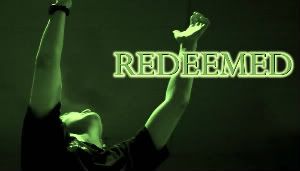He took up our infirmities and carried our sorrows…he was pierced for our transgressions…crushed for our iniquities; the punishment that brought us peace was upon him, and by his wounds we are healed. We all, like sheep, have gone astray, each of us has turned to his own way; and the Lord has laid on him the iniquity of us all. He was oppressed and afflicted, yet he did not open his mouth; he was led like a lamb to the slaughter, and as a sheep before her shearers is silent, so he did not open his mouth…he was cut off from the land of the living; for the transgression of my people he was stricken
Isaiah 53:4-8
The Friday we call “Good,” the day upon which we commemorate the sufferings and death of Jesus on the cross seem to drive this point home to us. This Friday brings us not to the God of our desiring, a sweet and nice God, but to a God perhaps we would rather not have.
I find myself rathering to jump ahead to Easter Sunday than sit here for hours pondering an event that seems to destroy our illusion of a God who seems nice and sweet all the time.
On the Friday we call “Good”, Jesus himself came to know God not as light but as darkness, not as presence but as absence. He experienced God not as a “nice” and “sweet” deity, but a terrifying one. “My God, my God, why have you abandoned me?
Why? Why have you forsaken me? Why?”
On the Friday that is “Good”, Jesus came up against the silence of God, Jesus came up against the terrifying night that hid God. God is experienced not as heaven but as hell. When Christians recite the Apostles’ Creed as part of the worship, these terrifying words are said,
“He (that is, Jesus) descended to hell.”
Yet, even in the darkest moment of his life, even as he died searching for God, Jesus refused to give up his faith on God. In the midst of suffering, in pain, in confusion and chaos, in death and in hell, Jesus refused to believe that God had truly abandoned him. He refused to give up on God even if God seemed to have given up on him. He embraced the darkness, he embraced the night, believing that even in the midst of the awful things of life, even in the human experience of hell, God would never be absent even though he was silent.
In the midst of things he could not understand, he abandoned himself to the hands of the God who seemed to have abandoned him. In that hour, he refused to believe that God had stopped loving him, and so he willingly placed himself in the hands of the silent and hidden God. Jesus quoted the prayer of Psalm 31:
“Into your hands I commend my spirit.
But he added one word to the prayer, and the word was “Father.” Or more accurately in contemporary popular language, “dad.” Abba, Pater, Father. Dad. Even in his darkness, for him God remained his loving Father. Jesus refused to believe that God ceased to be a loving “Father” to him.
And indeed, Jesus was right. God did not disappoint him, for Easter shows us that God was in the darkness of Good Friday, that God was really present in the seeming emptiness loneliness and abandonment of Good Friday. And that from out of evil and death, God brought forth goodness, salvation and life… But it is scary for us to let ourselves submit to the darkness of God. It is hard for us to trust in God who is hidden and silent. It is difficult for us to abandon ourselves to God in the night of faith.
Yet, what Holy Week teaches us is that we could reach the brightness of Easter Morning only if we walk through the darkness of Good Friday.
To hear the joyous noise of the Easter Alleluias, we must first endure the silence of God’s desert. The days from Good Friday to Easter teach us that the path to certainty of God’s love for us is through abandonment of our selves to him in the uncertainty of the dark night of faith.
Whenever we struggle with the dark moments of life, whenever we grapple with God’s silence in our lives, let us abandon ourselves to him, and say, “As I wait to behold your appearing in my life, O hidden God, as I wait to hear your voice, O God of silence, I embrace this night as holy, this darkness as a blessing waiting to unfold. I trust that you are here in this terrifying silence, and so, “Father, into your hands, I commend my spirit.
~Reverend Noel E. Bordador~



































No comments:
Post a Comment